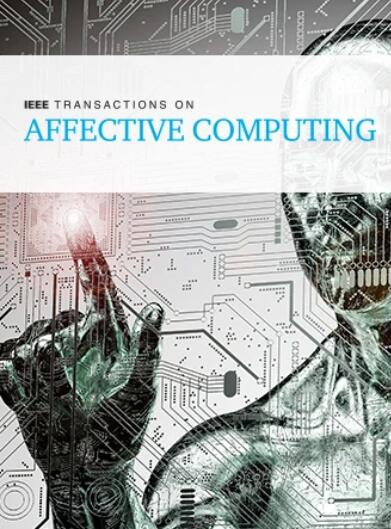Applying Probabilistic Programming to Affective Computing
IF 9.6
2区 计算机科学
Q1 COMPUTER SCIENCE, ARTIFICIAL INTELLIGENCE
引用次数: 13
Abstract
Affective Computing is a rapidly growing field spurred by advancements in artificial intelligence, but often, held back by the inability to translate psychological theories of emotion into tractable computational models. To address this, we propose a probabilistic programming approach to affective computing, which models psychological-grounded theories as generative models of emotion, and implements them as stochastic, executable computer programs. We first review probabilistic approaches that integrate reasoning about emotions with reasoning about other latent mental states (e.g., beliefs, desires) in context. Recently-developed probabilistic programming languages offer several key desidarata over previous approaches, such as: (i) flexibility in representing emotions and emotional processes; (ii) modularity and compositionality; (iii) integration with deep learning libraries that facilitate efficient inference and learning from large, naturalistic data; and (iv) ease of adoption. Furthermore, using a probabilistic programming framework allows a standardized platform for theory-building and experimentation: Competing theories (e.g., of appraisal or other emotional processes) can be easily compared via modular substitution of code followed by model comparison. To jumpstart adoption, we illustrate our points with executable code that researchers can easily modify for their own models. We end with a discussion of applications and future directions of the probabilistic programming approach.概率规划在情感计算中的应用
情感计算是一个快速发展的领域,受到人工智能进步的推动,但往往由于无法将情感的心理学理论转化为易于处理的计算模型而受到阻碍。为了解决这一问题,我们提出了一种情感计算的概率规划方法,该方法将基于心理的理论建模为情感的生成模型,并将其实现为随机的、可执行的计算机程序。我们首先回顾了概率方法,这些方法将对情绪的推理与对上下文中其他潜在心理状态(如信念、欲望)的推理相结合。与以前的方法相比,最近开发的概率编程语言提供了几个关键的设计数据,例如:(i)表示情绪和情绪过程的灵活性;(ii)模块性和组合性;(iii)与深度学习库的集成,有助于从大量自然数据中进行有效的推理和学习;四易于采用。此外,使用概率编程框架可以为理论构建和实验提供一个标准化的平台:通过代码的模块化替换和模型比较,可以很容易地比较竞争理论(例如评估或其他情绪过程)。为了启动采用,我们用可执行代码来说明我们的观点,研究人员可以很容易地为自己的模型修改这些代码。最后,我们讨论了概率规划方法的应用和未来的发展方向。
本文章由计算机程序翻译,如有差异,请以英文原文为准。
求助全文
约1分钟内获得全文
求助全文
来源期刊

IEEE Transactions on Affective Computing
COMPUTER SCIENCE, ARTIFICIAL INTELLIGENCE-COMPUTER SCIENCE, CYBERNETICS
CiteScore
15.00
自引率
6.20%
发文量
174
期刊介绍:
The IEEE Transactions on Affective Computing is an international and interdisciplinary journal. Its primary goal is to share research findings on the development of systems capable of recognizing, interpreting, and simulating human emotions and related affective phenomena. The journal publishes original research on the underlying principles and theories that explain how and why affective factors shape human-technology interactions. It also focuses on how techniques for sensing and simulating affect can enhance our understanding of human emotions and processes. Additionally, the journal explores the design, implementation, and evaluation of systems that prioritize the consideration of affect in their usability. We also welcome surveys of existing work that provide new perspectives on the historical and future directions of this field.
 求助内容:
求助内容: 应助结果提醒方式:
应助结果提醒方式:


